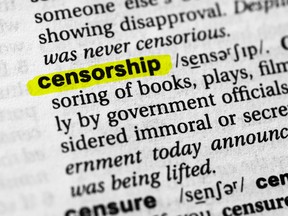Wasting Taxpayers’ Money & Throttling Free Speech: The Trudeau Tyrants Are Fighting “Hate”; That Is, Criticism of Privileged Minorities
Note the names of the tyrants who rule over us and wish to make privileged minorities “safe” by eradicating our freedom to speak and criticize.
You might was caused this extra surge in Liberal reaction. It was this:
https://petrolialambtonindependent.ca/2024/09/22/opp-investigate-after-four-pride-sidewalks-vandalized-in-petrolia/ “The Petrolia woman stood crying at the PRIDE sidewalk at LCCVI, frustrated, angry and sad to see that overnight someone had used what appeared to be a roller and some white paint to cover the sidewalk. At the north end, vandals used a stencil and black paint to emblazon “Fear God” in capital letters. There was also a cross drawn with spray paint. It was one of four PRIDE sidewalks damaged overnight. A small crossing leading to the front doors of Queen Elizabeth II Public School was painted white and, at Charlotte Eleanor Englehart Hospital near the eye clinic, white covered a sidewalk no more than 20 feet long. A black cross was also painted there.” Now millions more of our tax dollars will be spent to make the woke Liberals look sufficiently upset. LD
The Government of Canada launches Canada’s Action Plan on Combatting Hate News Release, Ottawa – September 23, 2024
Canada, like elsewhere around the world, has seen a rise in hate both on the streets and online in recent years. The federal government is committed to doing whatever it takes to protect everyone living in Canada as well as the resilient and diverse communities across the country to ensure that all can thrive while being their authentic self.
The rise in hate incidents has disproportionately affected Indigenous Peoples; Black, racialized, religious minorities, and 2SLGBTQI+ communities; women; and persons with disabilities. Hate not only harms those directly targeted but also impacts the broader Canadian society, undermining social cohesion and posing a threat to national security.
That’s why today, the Honourable Kamal Khera, Minister of Diversity, Inclusion and Persons with Disabilities, unveiled Canada’s Action Plan on Combatting Hate. The Action Plan represents Canada’s first-ever comprehensive cross-government effort to combat hate. It brings together 20 key federal initiatives grounded on three pillars:
- Empower communities to identify and prevent hate;
- Support victims and survivors, and protect communities; and
- Build community trust, partnerships and institutional readiness.
The Action Plan invests $273.6 million over six years, and $29.3 million ongoing, to tackle hatred from multiple angles. It includes increasing support to victims and survivors, helping communities prevent, address and protect people from hate; enhancing research and data collection; providing greater resources for law enforcement; and raising public awareness.
Everyone has a right to be safe and treated with dignity. We will collaborate with provincial, territorial and international governments, as well as First Nations, Inuit and Métis partners, and cities and communities across Canada to make this happen. Canada’s Action Plan on Combatting Hate will help us continue building a safer and more inclusive Canada where everyone can succeed, regardless of who they are, who they love or what they believe in.
Quotes
“Everyone has the right to feel safe, regardless of who they are, what they look like or what they believe in. We have all been alarmed to witness the tragic consequences of hate, both at home and abroad. Hate has no place in Canada – whether in person or online, in our schools, or in our places of worship. Our government is committed to keeping communities across the country safe. Because when someone becomes a victim of hate, it affects all of us. Canada’s first-ever Action Plan on Combatting Hate represents an unprecedented cross-government effort to combat hate while providing more support to victims of hate and at-risk communities. As we face difficult and challenging times, we must stand up for who are as a country – a country where diversity is our strength and where everyone can be who they are and achieve their dreams without fear.”
—The Honourable Kamal Khera, Minister of Diversity, Inclusion and Persons with Disabilities
“Hate, in all its forms, has no place in Canada – everyone has a right to feel and be safe in their homes and in their communities. We all have a role to play in fighting discrimination and fostering a fairer, safer and more inclusive Canada. The Changing Narratives Fund, as part of Canada’s Action Plan on Combatting Hate, will break down systemic barriers and empower diverse voices in the arts, culture and media. The fund ensures their experiences and perspectives are better represented, and advances anti-racism, equity, and diversity and inclusion within the cultural and media sectors.”
—The Honourable Pascale St‑Onge, Minister of Canadian Heritage
“In the face of an increase in hate crimes, our government is stepping up to ensure at-risk communities can access financial support to protect their institutions. The new Canada Community Security Program is designed to be simpler, more flexible and more generous, in direct response to what we’ve heard from community organizations across the country.”
—The Honourable Dominic LeBlanc, Minister of Public Safety, Democratic Institutions and Intergovernmental Affairs
“No one should live in fear of being who they are, but we know that discrimination based on sexual orientation or gender identity and expression continues to be a reality in Canada. This is wrong and must be eliminated. Canada’s Action Plan on Combatting Hate complements actions we have taken to protect and support Canadians since 2015, including the Federal 2SLGBTQI+ Action Plan, all of which were developed by listening to the voices and lived experiences of individuals and communities across Canada. As always, we continue to stand shoulder to shoulder with all communities experiencing hate and we will not hesitate to use all federal tools to protect and support them.”
—The Honourable Marci Ien, Minister for Women and Gender Equality and Youth
“We all expect to be safe in our homes, in our neighbourhoods and in our communities. This is why we introduced Bill C-63, a key component of Canada’s Action Plan on Combatting Hate. We know that online harms can have real world impacts with tragic and sometimes fatal consequences. This legislation is about keeping everyone safer in an online world that can feel more dangerous and unfortunately more toxic each and every day so that women, racialized persons, 2SLGBTQI+ people, and people of diverse faiths and backgrounds can go to their places of worship, community centres, schools or work without fearing that online threats might turn into real world danger.”
—The Honourable Arif Virani, Minister of Justice and Attorney General of Canada
“Canada is as innovative as it is diverse, and it is far more successful when everyone is given a fair chance to develop their full potential, free from hate and discrimination. With Canada’s Action Plan on Combatting Hate, we are standing up to confront hate and protect Canadians, and Statistics Canada will be key in researching and gathering the data needed to build a safer and more resilient society.”
—The Honourable François-Philippe Champagne, Minister of Innovation, Science and Industry
“Canada is a country rich in diversity, where every person deserves to feel safe and be respected. This is why today we’re launching Canada’s first-ever Action Plan on Combatting Hate, a commitment of $273 million to help build a safe Canada for everyone.”
—Sameer Zuberi, Parliamentary Secretary to the Minister of Diversity, Inclusion and Persons with Disabilities
Quick facts
- Budget 2022 provided $85 million over four years, starting in 2022–23, to the Department of Canadian Heritage to launch and implement the new Anti-Racism Strategy and a national action plan on combatting hate. Budget 2024 provides an additional $273.6 million over six years, starting in 2024–25, and $29.3 million ongoing to support Canada’s Action Plan on Combatting Hate. The Action Plan brings together key initiatives led by federal departments and organizations, including Canadian Heritage, Public Safety Canada, Justice Canada, the Royal Canadian Mounted Police, Women and Gender Equality Canada, Statistics Canada and the Canadian Race Relations Foundation.
- According to the July 2024 Statistics Canada data release, the number of police-reported hate crimes increased from 3,612 incidents in 2022 to 4,777 in 2023 (+32%), even though some victims might not report a hate crime they experienced. This followed an 8-percent increase in 2022 and a 72-percent increase from 2019 to 2021. Overall, the number of police-reported hate crimes (+145%) has more than doubled since 2019.
- Canada’s Action Plan on Combatting Hate is complemented by the work of the Special Envoy on Preserving Holocaust Remembrance and Combatting Antisemitism and the Special Representative on Combatting Islamophobia.
- Public Safety Canada’s enhanced Canada Community Security Program (CCSP) (previously the Security Infrastructure Program) is also part of Canada’s Action Plan on Combatting Hate. The CCSP is making it easier and more efficient for organizations and communities at risk of hate-motivated crime to access security support when they need it.
- The Action Plan aligns with ongoing efforts to further mitigate the risk of exposure to harmful content online through Bill C-63, which proposes to create a new Online Harms Act to create stronger protections for the most vulnerable groups online. The Government of Canada has tabled Bill C-63, An Act to enact the Online Harms Act, to amend the Criminal Code, the Canadian Human Rights Act and An Act respecting the mandatory reporting of Internet child pornography by persons who provide an Internet service and to make consequential and related amendments to other Acts, in the House of Commons.
- Canada is signatory to the Christchurch Call to Eliminate Terrorist and Violent Extremist Content Online, which is a global pledge by 56 governments, including Canada, as well as online service providers and civil society organizations to coordinate and collaborate on efforts to eliminate terrorist and violent extremist content online. The Government of Canada reiterates its engagement to advance the Christchurch Call to Action in Canada’s Action Plan on Combatting Hate.
- Canada’s Action Plan on Combatting Hate complements Changing Systems, Transforming Lives: Canada’s Anti-Racism Strategy 2024–2028. Both initiatives take a comprehensive and intersectional approach to confronting hate, racism and discrimination.
Related products
Associated links
- Canada’s Action Plan on Combatting Hate (PDF version)
- The Canada Community Security Program
- Canada’s Anti-Racism Strategy: Changing Systems, Transforming Lives 2024–2028
- Building a Foundation for Change: Canada’s Anti-Racism Strategy 2019–2022
- Multiculturalism and Anti-Racism Program (formerly the Community Support, Multiculturalism, and Anti-Racism Initiatives [CSMARI])
- Federal 2SLGBTQI+ Action Plan
Contacts
For more information (media only), please contact:
Waleed Saleem
Press Secretary
Office of the Minister of Diversity, Inclusion and Persons with Disabilities
waleed.saleem@hrsdc-rhdcc.gc.ca
Media Relations
Canadian Heritage
819-994-9101
1-866-569-6155
media@pch.gc.caSearch for related information by keyword: Society and Culture | Canadian Heritage | Canada | Canadian identity and society | general public | news releases | Hon. Kamal Khera | Hon. Pascale St-Onge | Hon. Dominic LeBlanc | Hon. Marci Ien | Hon. Arif Virani | Hon. François-Philippe Champagne



